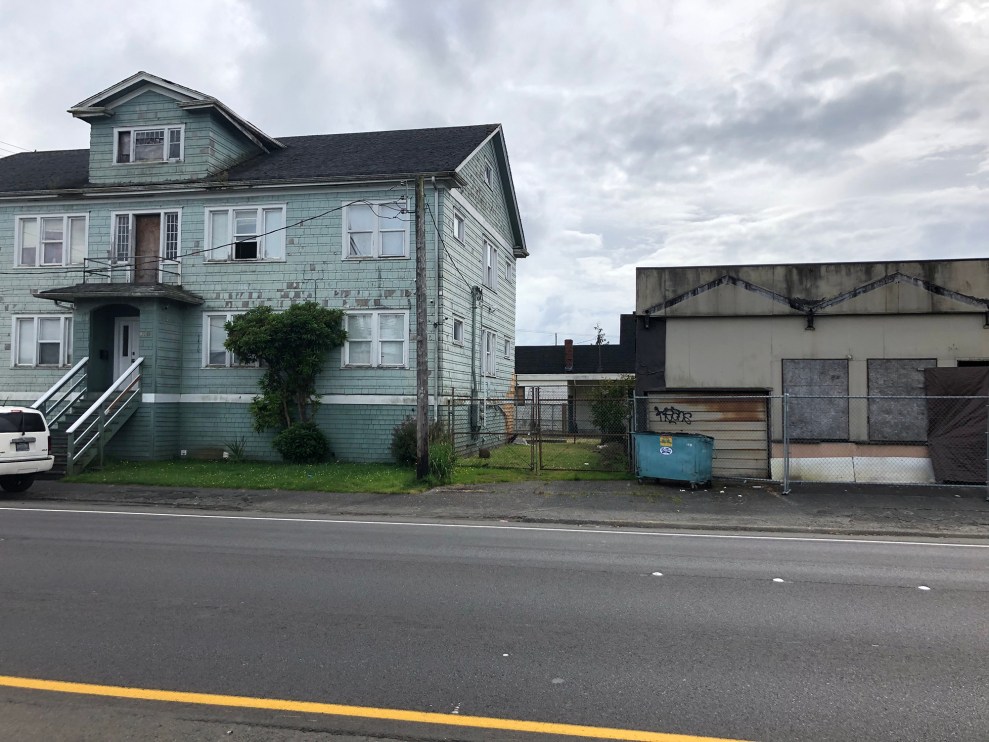State and Local Taxes Make Inequality Much Worse
This story was published in partnership with the Center for Public Integrity.
As she opened her $1,600 property tax bill in February, Edith Baltazar suddenly lost her appetite for the eggs she’d prepared for lunch with her daughter. Her thoughts raced: Would their home be taken away if she couldn’t pay it?
Baltazar’s daughter wept. The family would have to make a difficult decision: the property tax or $2,000 for diabetes medication.
The taxes won.
“Sometimes you have to choose—pay your property taxes instead of paying your water bill and everything else,” said Baltazar, recalling the stressful experience in a July interview.
The lowest-earning residents in Washington state, where Baltazar lives, pay almost 18 percent of their annual incomes in state and local taxes, while the wealthiest chip in 3 percent.
All but a handful of states make poor residents contribute a greater share of their income to taxes than wealthy people do. Economists call that upside-down approach “regressive.” Nationwide, the share the lowest-income earners pay to state and local taxes is 54 percent higher than what the top earners pay, according to the Institute on Taxation and Economic Policy.
And those policies hit communities of color the hardest.
Undocumented immigrants contribute billions of dollars in state and local taxes, according to estimates by ITEP and other groups, but aren’t eligible for many tax-funded services or tax rebates. Studies show assessors tend to inflate property tax assessments of low-priced properties, disproportionately owned by Black and Latino people. The higher tax bills increase the odds of what Baltazar feared—losing your home.
 Some of the homes in downtown Aberdeen, Washington, have been damaged by flooding and lack proper insulation. (Melissa Hellmann / Center for Public Integrity)
Some of the homes in downtown Aberdeen, Washington, have been damaged by flooding and lack proper insulation. (Melissa Hellmann / Center for Public Integrity)
All this means state and local tax systems that could help address America’s widening economic inequality are instead making the problem worse.
The federal system also increases inequality, with legal loopholes giving very high-net-worth people massive tax breaks. But the Internal Revenue Service doesn’t force low-income residents to shoulder the biggest relative burden. Most states do.
“We’re asking people to fund government programs even when they can’t afford basic needs, like food and shelter,” Ariel Jurow Kleiman, an associate professor at Loyola Law School in Los Angeles who focuses on tax law and policy, said via email. “That strikes me as profoundly unfair.”
“We’re asking people to fund government programs even when they can’t afford basic needs, like food and shelter.”A key reason: sales and other consumption taxes. Unlike the federal government, almost all states collect them. Spend $50 on clothes for your kid, and you’ll pay the same sales tax as anyone else in your area, regardless of income. The poorer you are, the greater the share of your resources the sales tax gobbles up.
Income tax is the main tool states have to counteract that. But some choose to tax everyone at the same rate, rather than following the federal model of increasing up the income scale.
And some states, like Washington, don’t tax income at all. These places lean especially heavily on sales tax and other revenue options that make lower-income people contribute more.
!function(){"use strict";window.addEventListener("message",(function(e){if(void 0!==e.data["datawrapper-height"]){var t=document.querySelectorAll("iframe");for(var a in e.data["datawrapper-height"])for(var r=0;r
Copyright
© Mother Jones
